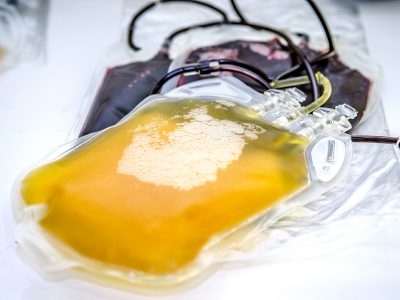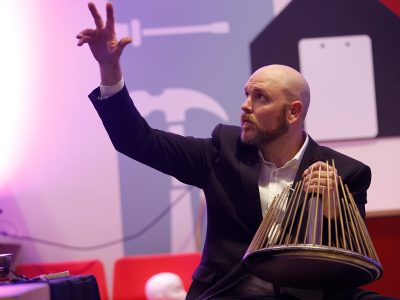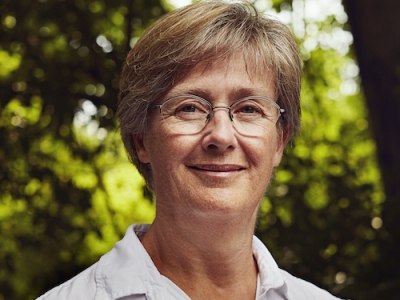By Dan Rubinstein
Photos by Terence Ho
Like many kids growing up in Ottawa, Olivia Pucci was drawn to water. The city’s geography is defined by two rivers and a canal, all of which are sprinkled with places for aquatic play.
Pucci started off as a swimmer, then got into kayak racing. She trained and competed at the Rideau Canoe Club on Mooney’s Bay, a short walk from the Carleton University campus, spending five years on the provincial team and representing Canada internationally on the national junior team.
On the water, Pucci often wore paddling gear made by Level Six, an upstart Ottawa-based company that over the past three decades has grown into one of North America’s top water sports brands. So it shouldn’t be a surprise that after she followed her love for making things with her hands into Carleton’s Industrial Design program, she landed at Level Six on a summer internship.
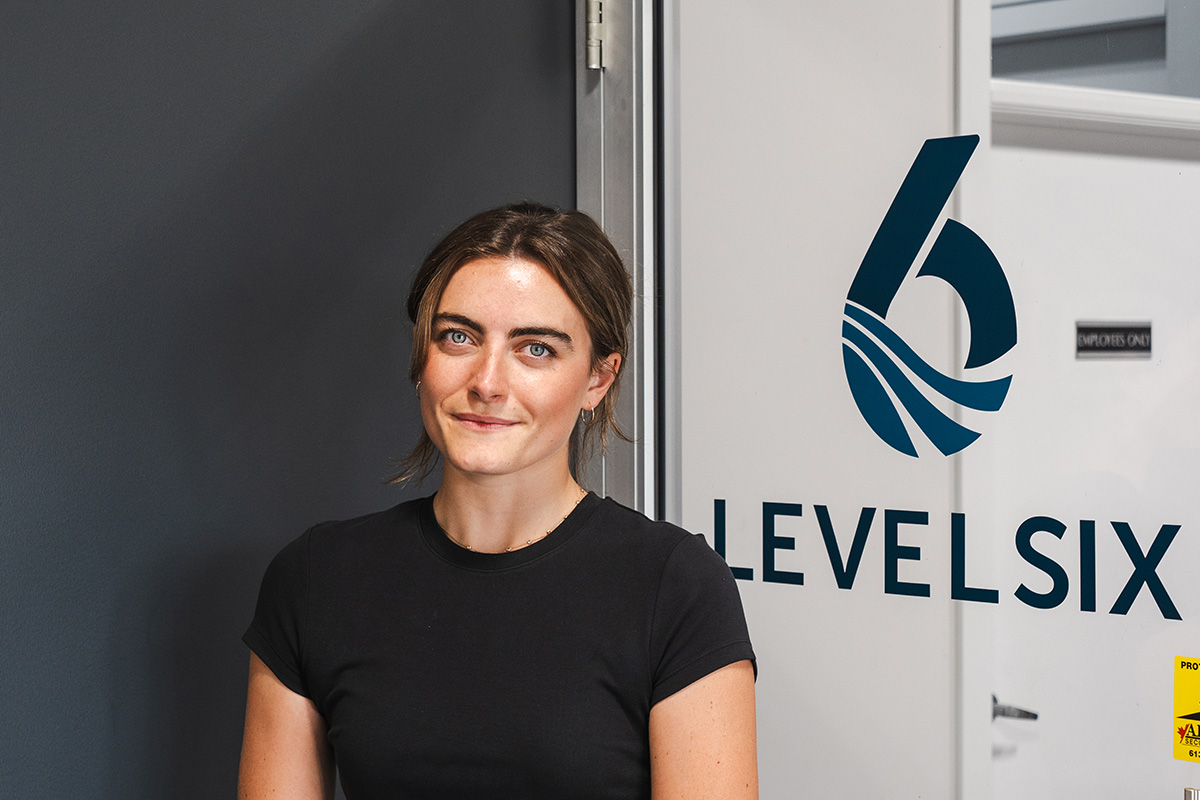
Industrial Design grad Olivia Pucci
That gig was such a good fit that when Pucci graduated from university in spring 2024, she immediately started working at the company as a technical apparel designer.
“I love it — I get to nerd out on clothing and gear all the time,” says Pucci, who has already designed several different styles of shorts that will be part of the brand’s spring 2025 line, available at major national retailers such as MEC.
“Industrial design is really about creative problem solving. It often starts from the need for improvement or conceptualization. As designers, we think not only about the small details and the challenge at hand, but also about the bigger picture and how our work interacts with its context of use and production.
“Design thinking is kind of irreversible once you understand what happens behind the scenes to make a product. You develop a critical eye that you can’t turn off and an appreciation for the systems behind everything that we see around us.”
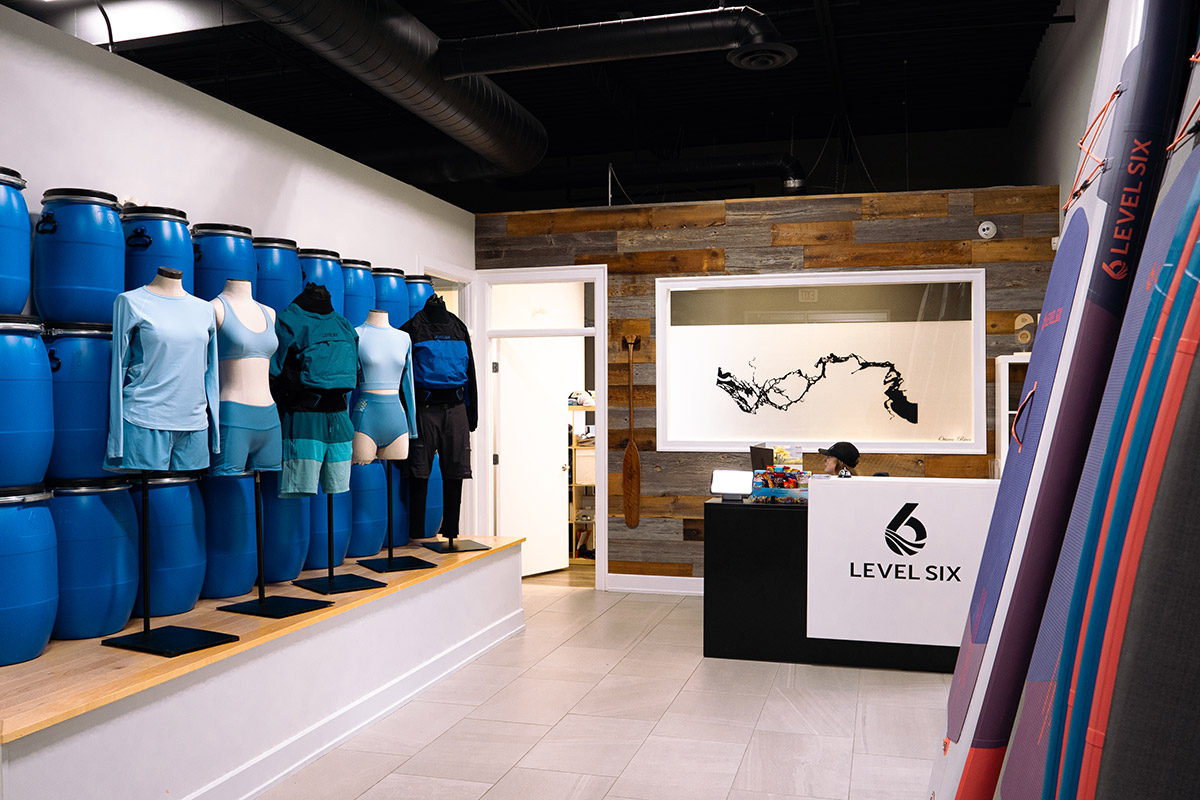
A Blend of Theory and Hands-On Work
Pucci was planning to study engineering at Carleton after high school, until she went to an open house on campus and discovered industrial design. The program offered a “perfect mix” of theory and hands-on fabrication, as well as an opportunity to tailor work toward her own interests.
“We learned key foundational skills and were pushed to understand the basics, then we were given more leeway to explore areas we’re passionate about,” she says.
“We also had to take psychology, economics, marketing and manufacturing courses, so we saw the interdisciplinary nature of design.”
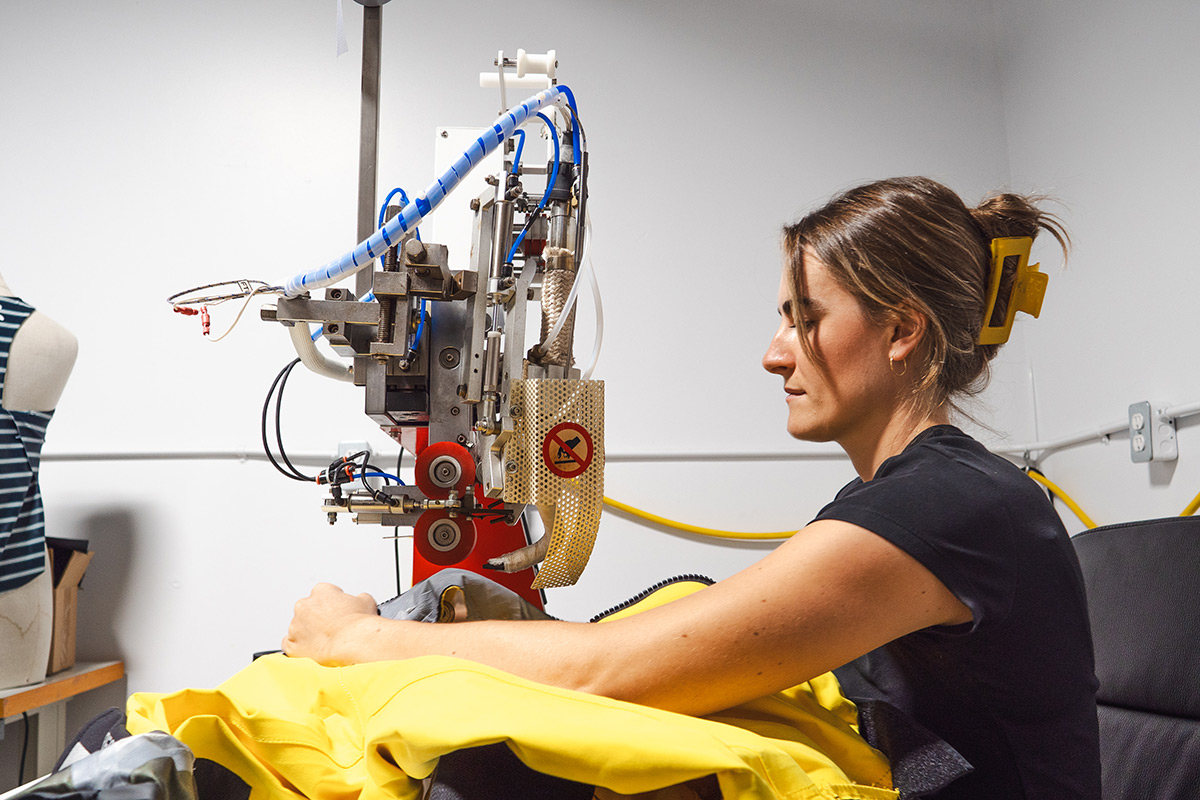
For her fourth-year capstone project, Pucci designed an aquatic rescue device called Hydrex, a collapsible stretcher-like unit with an inflatable base and wraps that can be deployed quickly to get people out of the water while minimizing the risk of further injury.
The Hydrex won a first-place prize at the Association of Chartered Industrial Designers of Ontario’s Rocket competition for student designs in Toronto last May. Testing and refining a device like this for rescue use would be a very long process, and Pucci is focused on her fledgling career these days, but the creative journey itself was rewarding.
“Olivia made extensive use of our labs to make iterative prototypes,” says Rob Watters, the industrial design professor who taught her capstone project class. “This allowed for ongoing input from experts and users and gave her real insights that led to her award-winning design.
“Each term, our students put all the theory they learn into practice during studio classes and labs. This layering builds real-world competencies and they graduate with professional work readiness.”
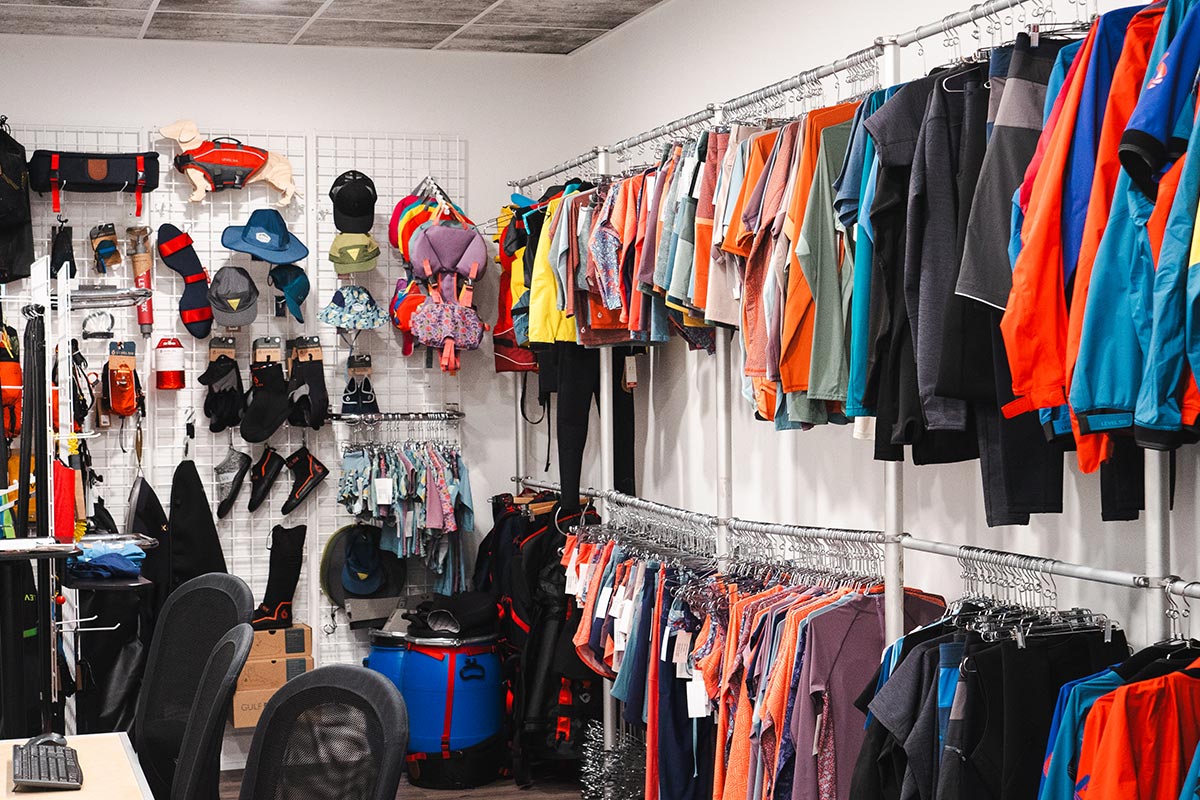
Exclusively Hiring Carleton Design Grads
Level Six was launched by competitive kayaker Stig Larsson in 1997. From selling shorts and shirts out of the back of a van, the company has expanded to a wide range of stand-up paddleboards, dry suits, paddling accessories and activewear, with an emphasis on using 100 per cent recycled materials and no single-use plastics.
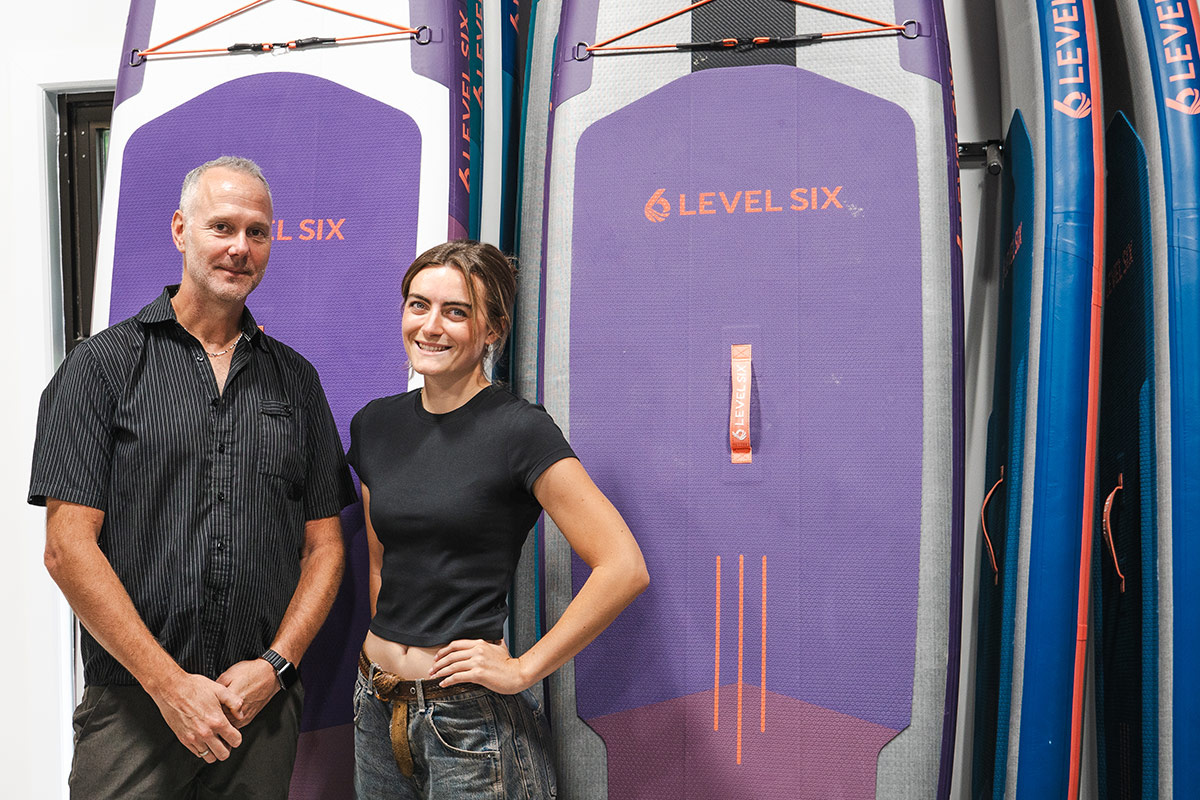
Pucci with Level Six founder Stig Larsson
“In the past, we hired designers from Montreal and Toronto, but over the last 10 years we’ve exclusively hired from the Carleton industrial design program,” says Larsson.
“We find that beyond their sense of colour and fit, they know how products have to function in the real world. That’s a unique skillset.”
During her first few weeks on the job, in addition to physically prototyping and testing apparel and sketching out product updates, Pucci has also been working on the company’s upcoming line of personal floatation devices.
“This is new for Level Six, so it entails a lot of exploration,” she says. “The work here is never boring. There’s a perpetual cycle of development. Some of the gear we make is very technical, and we’re always adapting to new trends, new styles and new needs for the end user.
“Having a background in water sports helps me understand those needs. There’s nothing like personal experience.”
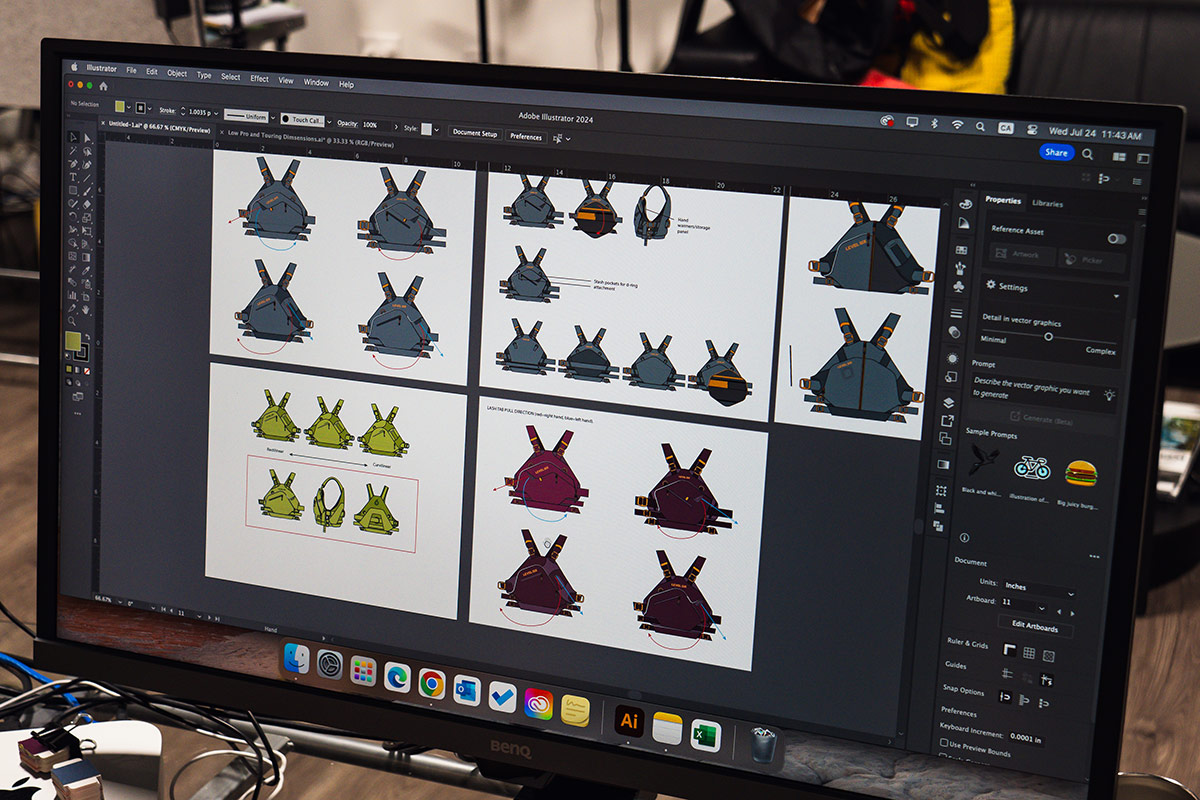
Thursday, August 8, 2024 in Grad Stories, Industrial Design
Share: Twitter, Facebook
